Joint Sociostructural Determinants of Health (SDoH) & Implementation Science (IS) Fellows

Brenice Duroseau, MSN, FNP-C, RNC-OB, AAHIVS is a a PhD candidate at the Johns Hopkins University School of Nursing, with a research focus on sexual and reproductive health (SRH), HIV prevention, and addressing the structural, social, and political determinants of health that affect disproportionately affected communities. With over a decade of healthcare experience, Brenice is a recognized nurse practitioner specializing in infectious diseases, HIV/AIDS, STIs, and addiction medicine. Her dissertation research explores critical service gaps in SRH, focusing on the intersection of HIV risk and prevention, and reproductive health access. By examining the social, political, and structural factors contributing to these disparities, her work seeks to inform culturally responsive interventions that enhance access to HIV prevention services, integrate services for a holistic approach, and promote reproductive justice. Brenice's dissertation work has been supported by the NIH/NIMH R36 Dissertation Research Grant, the ISSWSH Scholars in Women’s Sexual Health Research Grant, the Surgeon General C. Everett Koop HIV/AIDS Research Grant, and the Faculty Development Micro Grant Award from the Johns Hopkins University Center for AIDS Research. She is committed to combining her clinical expertise with research to address the multifaceted barriers that disproportionately affected communities face in navigating HIV prevention and SRH care, aiming to drive systemic change through her work.
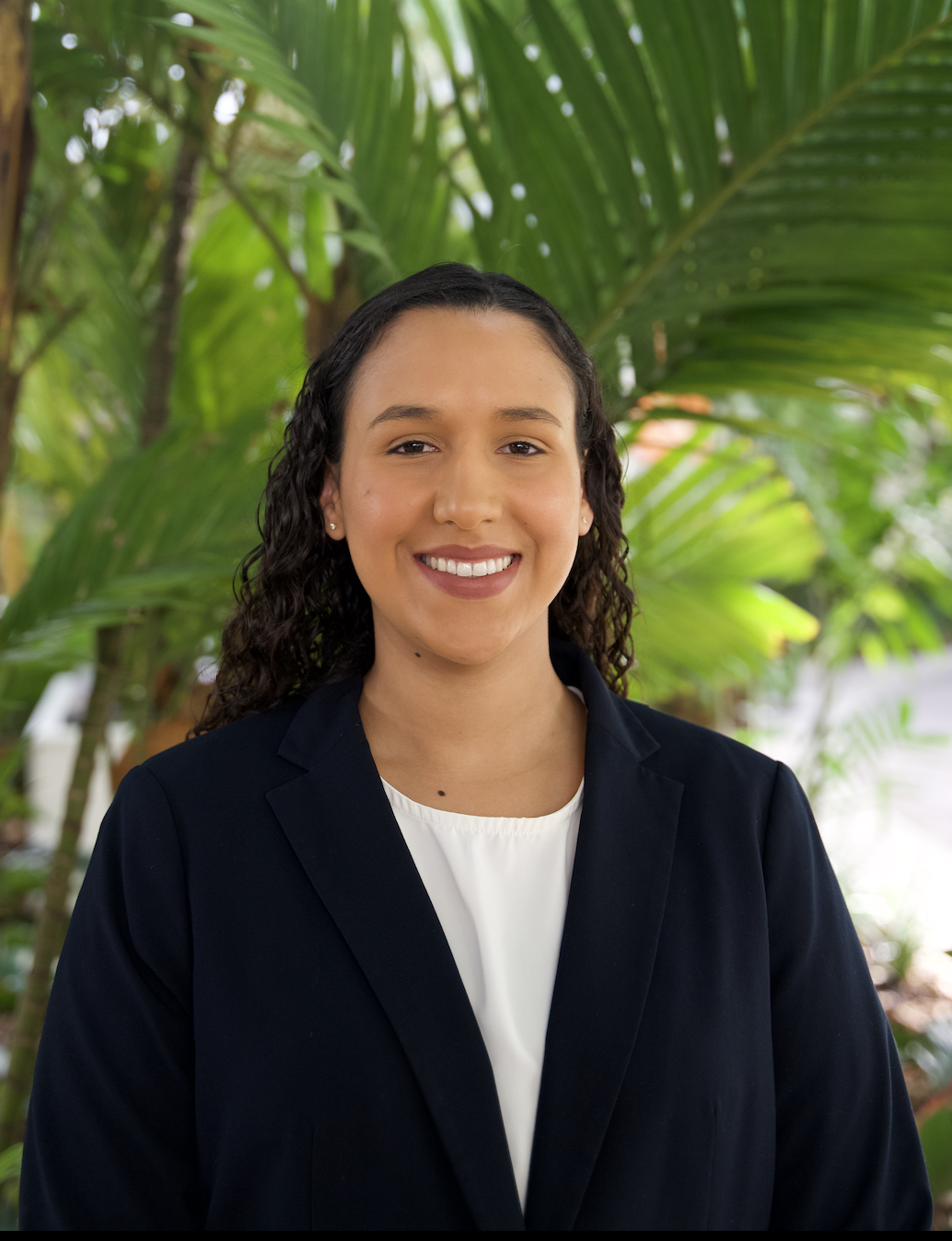
Edda Rodriguez, PhD, MPH is a Research Assistant Professor in the Department of Public Health Sciences, Division of Prevention Science and Community Health, at the University of Miami Miller School of Medicine. She is deeply committed to working with disproportionately affected communities to improve health outcomes, with an emphasis on the ongoing human immunodeficiency virus (HIV), substance misuse, and mental health syndemic. In her research, Dr. Rodriguez utilizes implementation science, social network, and qualitative approaches to understand how this complex syndemic impacts individuals at the intersection of multiple positions. She is passionate about using community-based approaches to ensure that the needs of the community remain central to her work.

En-Ling Wu is an Assistant Professor of Medicine in the Section of Infectious Diseases & Global Health at the University of Chicago and a clinician at Chicago Family Health Center. She is interested in the integration of HIV/STI prevention and care using a syndemics approach in community settings.
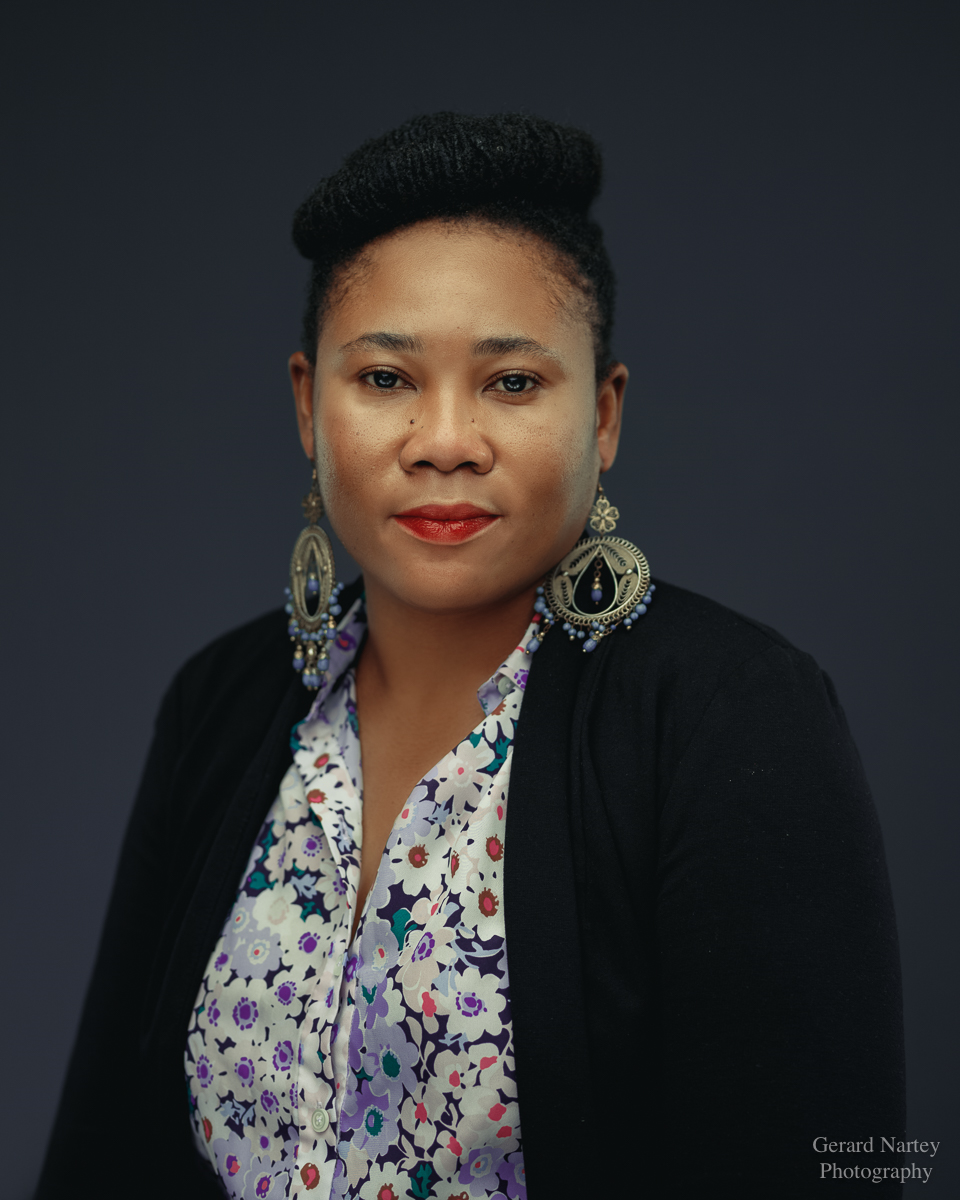
Gloria Aidoo-Frimpong, PhD, MPH, MA is an Assistant Professor in the Department of Epidemiology and Environmental Health at the University at Buffalo, SUNY. Her research addresses critical issues in HIV prevention, focusing on (1) understanding HIV risk and access challenges among disproportionately affected populations; (2) developing theoretically driven HIV prevention interventions tailored to different communities; and (3) utilizing technology to enhance the implementation and dissemination of these programs. Dr. Aidoo-Frimpong holds a Ph.D. in Community Health and Health Behavior from the University at Buffalo, as well as an M.P.H. and M.A. in International Studies from Ohio University. She completed an NIMH T32 postdoctoral fellowship at Yale’s Center for Interdisciplinary Research on AIDS and is a 2024 NIMHD Research Institute Scholar. She also serves on the editorial board of BMC Public Health and is a member of the Black Caucus of the HIV Prevention Trials Network.

Dr. Jessica Zemlak (she/her) is an Assistant Professor at Marquette University College of Nursing. She is an early-stage investigator whose research focuses on the socio-structural determinants of sexual and reproductive health. Dr. Zemlak’s program of research is informed by her clinical experience as a Family Practice and Psychiatric Mental Health Nurse Practitioner and her passion for advancing sexual and reproductive health. Her most recent research is focused on improving PrEP access for women who sell sex through community empowerment and technology.

Dr. Rachel Logan (she/her) is a Research Specialist in the Department of Family and Community Medicine at the University of California, San Francisco. Her research focuses on improving people’s experiences of sexual and reproductive health services, particularly among disproportionately affected populations. Her current work seeks to improve PrEP and HIV prevention services for women in the Southeastern U.S., leveraging trusted relationships with reproductive health providers.
HIV & IS Fellows

Adam Leonard, MS, MPH, RN, is a second-year PhD student at the Johns Hopkins School of Nursing and an adjunct assistant professor at the UCSF School of Nursing. He is an experienced clinician, researcher, and public health professional dedicated to reducing HIV incidence and improving HIV outcomes among vulnerable adolescents and young adults. Adam has worked extensively with youth experiencing homelessness, providing targeted interventions that address the unique challenges faced by this population. His research in this area explores the intersection of HIV prevention and care with substance use and social vulnerability, contributing to a broader understanding of how services can be designed and implemented to serve this key population best. Adam’s work in South Africa focuses on identifying risk and protective factors for youth retention in tuberculosis care and approaches to integrating STI screening and PrEP delivery into public sector TB services.

Dr. Adam Visconti is a family medicine trained physician and an Associate Professor in the Department of Family Medicine at Georgetown University. He completed residency in the District of Columbia at Georgetown University / Providence Hospital and previously served as the chief medical officer for DC Health HIV/AIDS, Hepatitis, STD and TB administration, chief of the STD and TB Control Division, medical director for the DC Health and Wellness Center. His research has focused on HIV prevention, STI diagnosis and treatment, and the intersection of preventive primary care and HIV in the United States. Dr. Visconti works with the District of Columbia MWCCS and STAR studies to understand and improve preventive health outcomes for persons living with and at-risk for HIV..

Adati Tarfa iis a postdoctoral associate at Yale School of Medicine, Division of Infectious Diseases, in Dr. Sandra Springer’s INSTRIDE (Integrating Substance Use Treatment Research with Infectious Disease for Everyone) Lab. Dr. Tarfa holds a Doctor of Pharmacy Degree from Drake University (2017) and an MS and PhD in Health Services Research from the University of Wisconsin-Madison (2023). Dr. Tarfa has explored the perceptions of patients, pharmacists, and social workers on barriers to linkage and retention in HIV care within community pharmacies. Using the Addiction-Comprehensive Health Enhancement Support System (A-CHESS) mobile app intervention, Dr. Tarfa investigated factors influencing HIV medication adherence among individuals with HIV and substance use disorders. Additionally, she has used qualitative discourse analysis and illness perception theories to explore patients' perspectives and the barriers they encounter when seeking care for their comorbid HIV and SUD.

Amelia M. Stanton, PhD (she/her) is an Assistant Professor of Psychological and Brain Sciences at Boston University (BU); the Director of the Sexual, Reproductive, and Mental Health Disparities Program at BU; and an affiliated faculty member with the Fenway Institute at Fenway Health, a community health center in Boston that primarily serves underserved populations. She completed her doctorate in clinical psychology at the University of Texas at Austin and her clinical internship at Massachusetts General Hospital (MGH)/Harvard Medical School (HMS). Her postdoctoral fellowship was supported by an NIMH-funded T32 fellowship in global psychiatry at MGH/HMS. Her research focuses on mitigating psychological barriers to optimal sexual and reproductive health via the development and evaluation of psychosocial interventions, both internationally and domestically.

Bianca Allison MD, MPH (she/her) is a teen-focused general pediatrician and health services researcher whose research focuses on the provision of equitable, developmentally tailored sexual and reproductive healthcare to adolescents. Her primary research interests are (1) developing new approaches to engage clinicians in the translation and delivery of adolescent-centered sexual and reproductive healthcare; and (2) implementing effective, patient-oriented, and scalable interventions to improve uncovering reproductive autonomy. She is pursuing research focused on understanding provider biases in healthcare services. Through these studies, her group is working to gain a better understanding of how to support both clinicians and adolescents in person-centered contraceptive and STI counseling and care. Her long-term career goal is to improve adolescent sexual and reproductive health outcomes, by improving the quality of and access to adolescent-centered sexual and reproductive health care delivery.
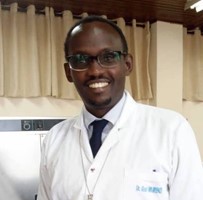
Gad Murenzi, MD, MPH, MMed is the Director of the Einstein-Rwanda Research and Capacity Building Program based at Research for Development and Rwanda Military Referral and Teaching Hospital in Kigali, Rwanda. He leads scientific research and capacity building activities of the program which focuses on HIV/HPV and related comorbidities. His research interests include HIV, cancer (mainly HPV related cancers) and other NCDs and he is PI of the Rwanda clinical trials site for cervical cancer prevention among women with HIV (WWH) under the CASCADE network. Previously, he served as the Site Investigator and Colposcopist of the Cervical Cancer Screening Project among WWH and coordinator of research laboratory development. In addition, he leads studies on HPV vaccine effectiveness among WWH, anal/penile HPV and anal squamous intraepithelial lesions and cancer. He is also a high resolution anoscopy (HRA) provider and pathologist. Dr. Murenzi completed his medical degree at the National University of Rwanda and did a post-doctoral fellowship in gynecologic pathology and cytopathology at the Albert Einstein College of Medicine and Montefiore Medical Center in Bronx, NY-USA. He then completed a Master of Public Health at the University of Rwanda and a Master of Medicine in Anatomic Pathology at Muhimbili University of Health and Allied Sciences (MUHAS) in Dar-Es-Salaam, Tanzania and he is currently pursuing a PhD in Public Health at the University of Rwanda.
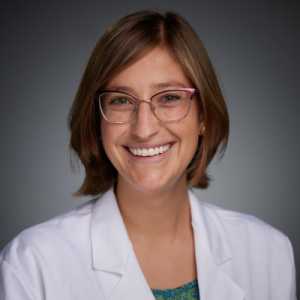
Hayley Cunningham, MD (she/her) is an infectious diseases fellow at Duke University, where she also attended residency. Her research focus is improving HIV prevention and treatment among multiple communities. As an Interdisciplinary Research Training Program in AIDS T32 trainee, her current project involves mapping the PrEP care continuum for disproportionately affected patients within the Duke health care system. As an ADAPT fellow at the Durham VA Medical Center, she is also examining PrEP use among different veterans across the United States. At the same time, she is working to integrate PrEP care in Medicine Clinics to improve PrEP uptake and adherence. She hopes to partner with the Durham County Health Department and community-based organizations to increase awareness, access, and acceptability of PrEP, HIV testing, and HIV treatment among multiple communities in the Triangle.

Katherine Robsky, PhD, MPH, is an Assistant Professor in the Division of Internal Medicine, Department of Medicine, at the Georgetown University Medical Center and the Lead for Epidemiology, Surveillance, and Data Science at the GU Center for Global Health Practice and Impact. She is an infectious disease epidemiologist with additional interests in the application of implementation science to improve global health and the development of in-country research capacity. She is particularly interested in the integration of health programs and systems to improve efficiencies and provide patient-centered public health services. Dr. Robsky received her MPH in Infectious Diseases from the University of California, Berkeley and her PhD in Infectious Disease Epidemiology from Johns Hopkins Bloomberg School of Public Health.

Mei Tan, PhD is a second-year postdoctoral research fellow at the HIV Center for Clinical and Behavioral Studies at Columbia University. She earned her PhD in Developmental Psychology at the University of Houston. Working in child development research in rural Zambia for over a decade has nurtured her deep interest in cultural psychology. Her research aims broadly to combine studies of culture and child development with implementation science approaches to devise sustainable interventions to mitigate the impacts of HIV on children’s long-term cognitive and health trajectories.
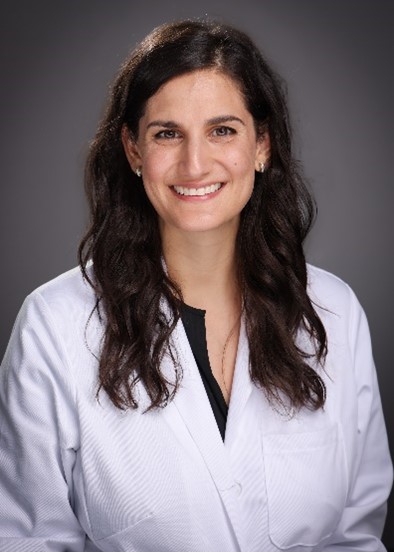
Naseem Alavian, MD, MPH (she/her) is a fellow in Infectious Disease at Duke University School of Medicine supported by the T32 Interdisciplinary Research Training Program in AIDS. Her primary research involves leveraging informatics and artificial intelligence/machine learning (AI/MI) along with qualitative research to develop and implement innovative strategies to optimize the HIV Care Continuum. She is exploring how advances in AI/ML methods open up the opportunity to detect complex relationships within electronic medical record data, including identifying HIV care patterns and predicting risk for virologic failure or care disengagement. She is also engaged in qualitative, community-engaged research aimed at characterizing perspectives on use of AI in identifying PrEP candidacy among women and gaining their insights on patient-centered approaches to deploying AI-based tools in the context of clinical care.
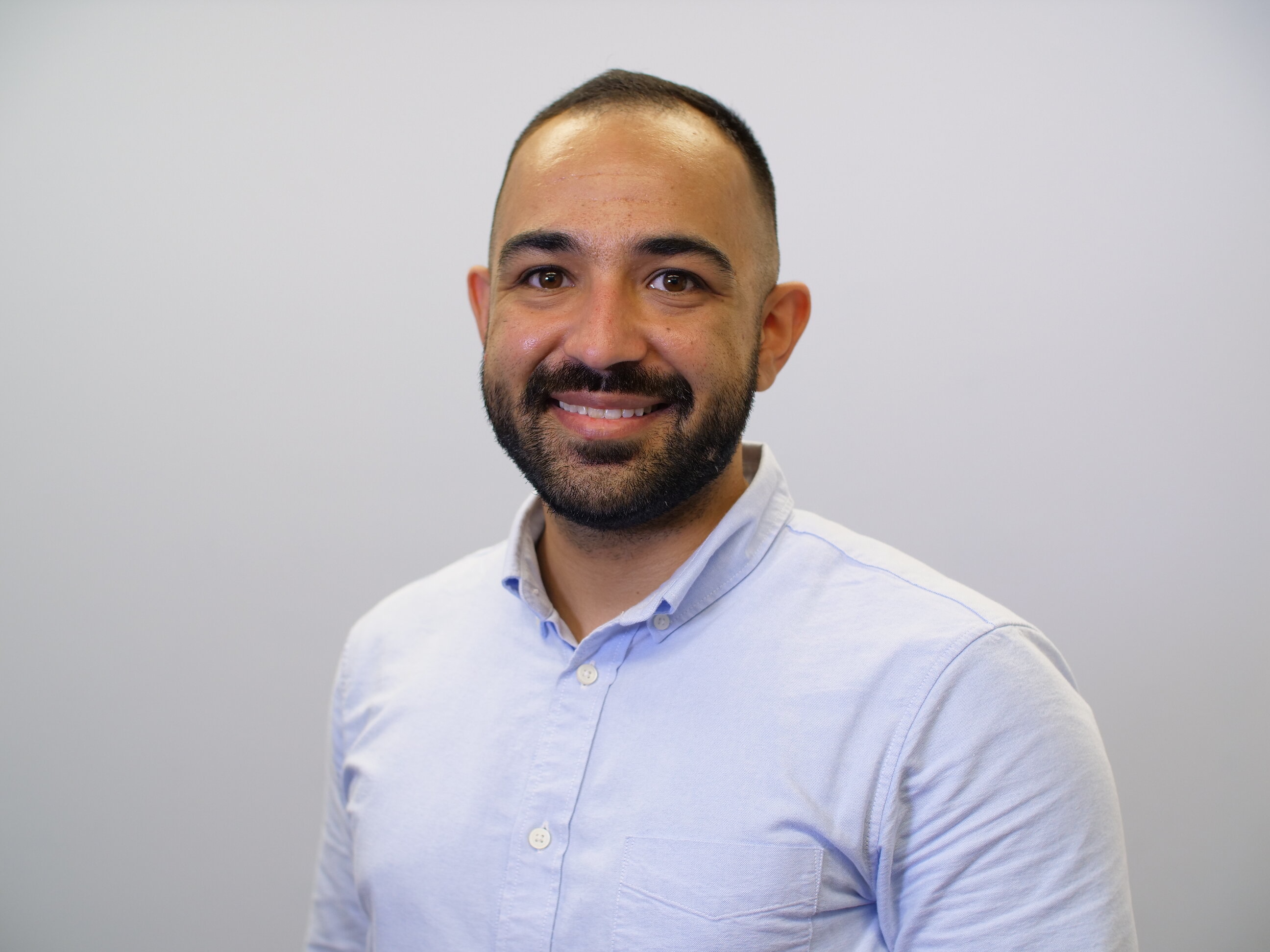
Omeid Heidari, PhD, MPH, NPis an assistant professor at the University of Washington School of Nursing. He has experience working at the bedside, as a primary and specialty care nurse practitioner, and as a researcher. His work is focused broadly on improving healthcare engagement for people living with HIV and other chronic infectious diseases, and substance use disorder. His current research is focused on integrated primary care for people who use drugs and evaluation of state-level policy and programs to reduce opioid overdoses. He uses a variety of research methods including mixed-methodology, psychometrics and latent class analysis, and implementation science to improve healthcare services and engagement. His clinical practice is focused on treatment of HIV, Hepatitis C, and other chronic infectious diseases in the primary care setting and managing opioid use disorder in the primary care and low-threshold setting.

Dr. Ronald Olum, MBChB, is a Research Associate at Makerere University School of Public Health in Uganda and a member of the WHO Global Action for Measurement of Adolescent Health (GAMA) Advisory Group. He underwent medical training at Makerere University, completed the Fogarty Fellowship (ACHIEVE Consortium) at Washington University in St. Louis, and recently finished an MPH at Imperial College London. Dr Olum does research in infectious disease epidemiology, implementation science, and global health, with interests in HIV/AIDS, tuberculosis, and emerging/re-emerging diseases. His current research focuses on improving access to HIV prevention and care for adolescents and young people in Uganda and other low-resource settings, using an implementation science lens.

Samuella Ware, PhD, MPH (she/her), is a Senior Research Associate at ETR with over a decade of experience in HIV prevention. She currently serves as the principal investigator, leading evaluations of HIV prevention and support initiatives in the South and among Black women. Her research focuses on promoting sexual and reproductive health and improving HIV outcomes within communities using community-centered, asset-based approaches. Dr. Ware holds a PhD in Public Health Education from UNC-Greensboro and completed a postdoctoral fellowship at Drexel University.